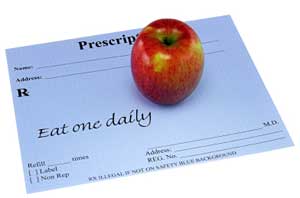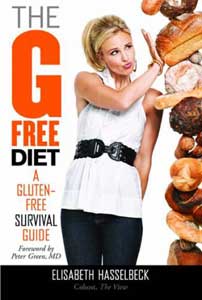These days, the old adage “a penny for your thoughts” would have some people asking for a refund, especially when it comes to nutrition. I bet everyone reading this can come up with at least one example of “bad” nutrition advice they received at one time or another. (I’d love to get your examples in the comments section.)
Mistakes happen and every once in awhile you are bound to get some bad information. But when your personal health and wellness is on the line there’s no room for confusion. We’re all busy and have limited time to read and educate ourselves. Who doesn’t want a straightforward answer to their nutrition questions?
So, here are a few tips for finding credible information:
- Use the Internet with caution. When it comes to nutrition, you have to remember that anyone can post anything on the Internet and make it look appealing without any evidence of proof. Beware of the snake oil salesman lurking on the Internet, making promises about products, supplements, potions, and pills. They like to hide behind a few solid scientific facts and then try to relate what they are selling to it. For any new website you find, look for the “about” section and check credentials of the organization and people behind it (see DietsInReview.com‘s about page). Government, university, and hospital-based websites are the most trustworthy. The portal www.nutrition.gov is a window into all the government nutrition resources. Dozens of nutrition experts with Ph.Ds, RDs, and MDs are involved in producing these free consumer resources.
 Book buyers beware. Don’t let celebrities or sexy marketing trick you into buying a book you don’t need. A good example is Elisabeth Hasselbeck’s G-Free Diet book. She is a beautiful, sexy celebrity who happens to have Celiac’s disease, in which eating foods with gluten make her very ill. For other people with Celiac’s this may be a useful book. But many people without Celiac’s disease are trying the “G-free diet” to lose weight and that is unnecessary. Why waste energy avoiding gluten if you don’t have to? That’s like avoiding almonds when you don’t have a nut allergy. If you like celebs, no problem, just look for a book where the celebrity is partnered with a nutrition expert like The All-Pro Diet by Tony Gonzaleze and Mitzi Dulan, RD, CSSD, a sports dietitian and nutritionist for the Kansas City Chiefs.
Book buyers beware. Don’t let celebrities or sexy marketing trick you into buying a book you don’t need. A good example is Elisabeth Hasselbeck’s G-Free Diet book. She is a beautiful, sexy celebrity who happens to have Celiac’s disease, in which eating foods with gluten make her very ill. For other people with Celiac’s this may be a useful book. But many people without Celiac’s disease are trying the “G-free diet” to lose weight and that is unnecessary. Why waste energy avoiding gluten if you don’t have to? That’s like avoiding almonds when you don’t have a nut allergy. If you like celebs, no problem, just look for a book where the celebrity is partnered with a nutrition expert like The All-Pro Diet by Tony Gonzaleze and Mitzi Dulan, RD, CSSD, a sports dietitian and nutritionist for the Kansas City Chiefs.
- Be Mindful of the Media. Understand something about the media. It is a competitive business just like the airline or fast food industries, for example. The media compete for ratings, sales, subscriptions, etc. They need to find ways to stand out and that means running projects short on staff or racing to be the first to break a story. The time crunch and competition can sometimes cause the media to report on “breaking research” in a very short space, like a 30-second spot or quarter-page article. The bottom line is that there is rarely enough room to give you the full story. Research studies come out all the time and their intention is to contribute to a body of knowledge. Yes, it is interesting when something new comes out, but experts who understand the research process know that studies contain flaws and bias so the new knowledge must be considered within the context of the big picture. Consider the media as a “starting point” for nutrition advice. If it sounds too good to be true, it probably is. Don’t go making quick changes after one study. Do some homework, ask an expert, search credible Internet sources.
